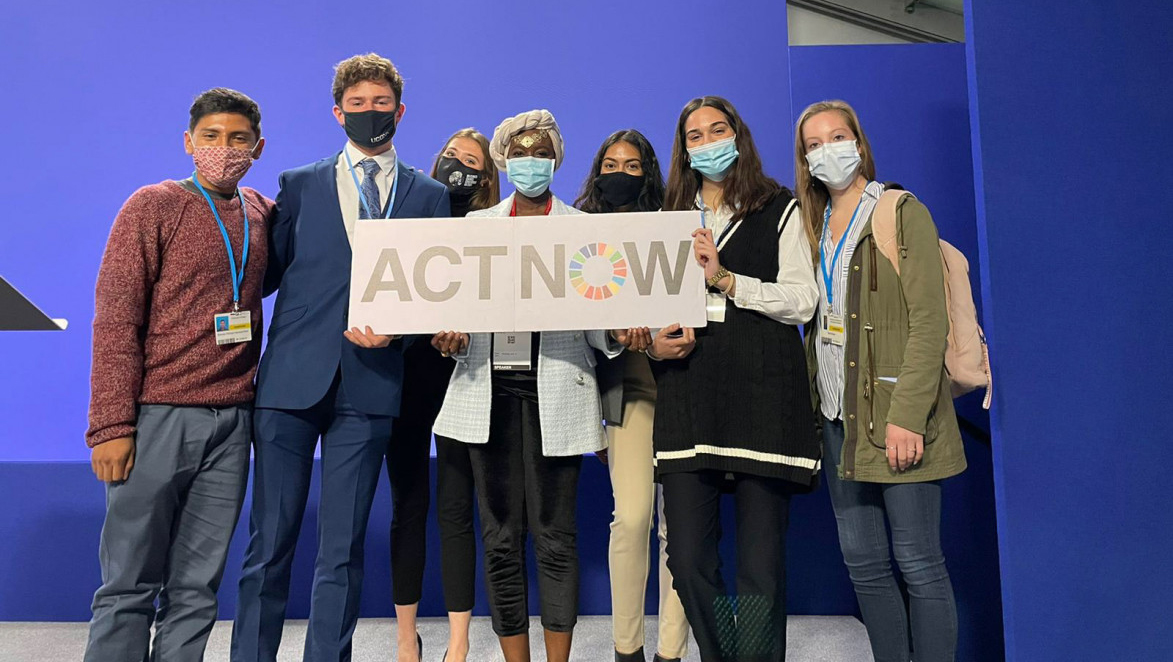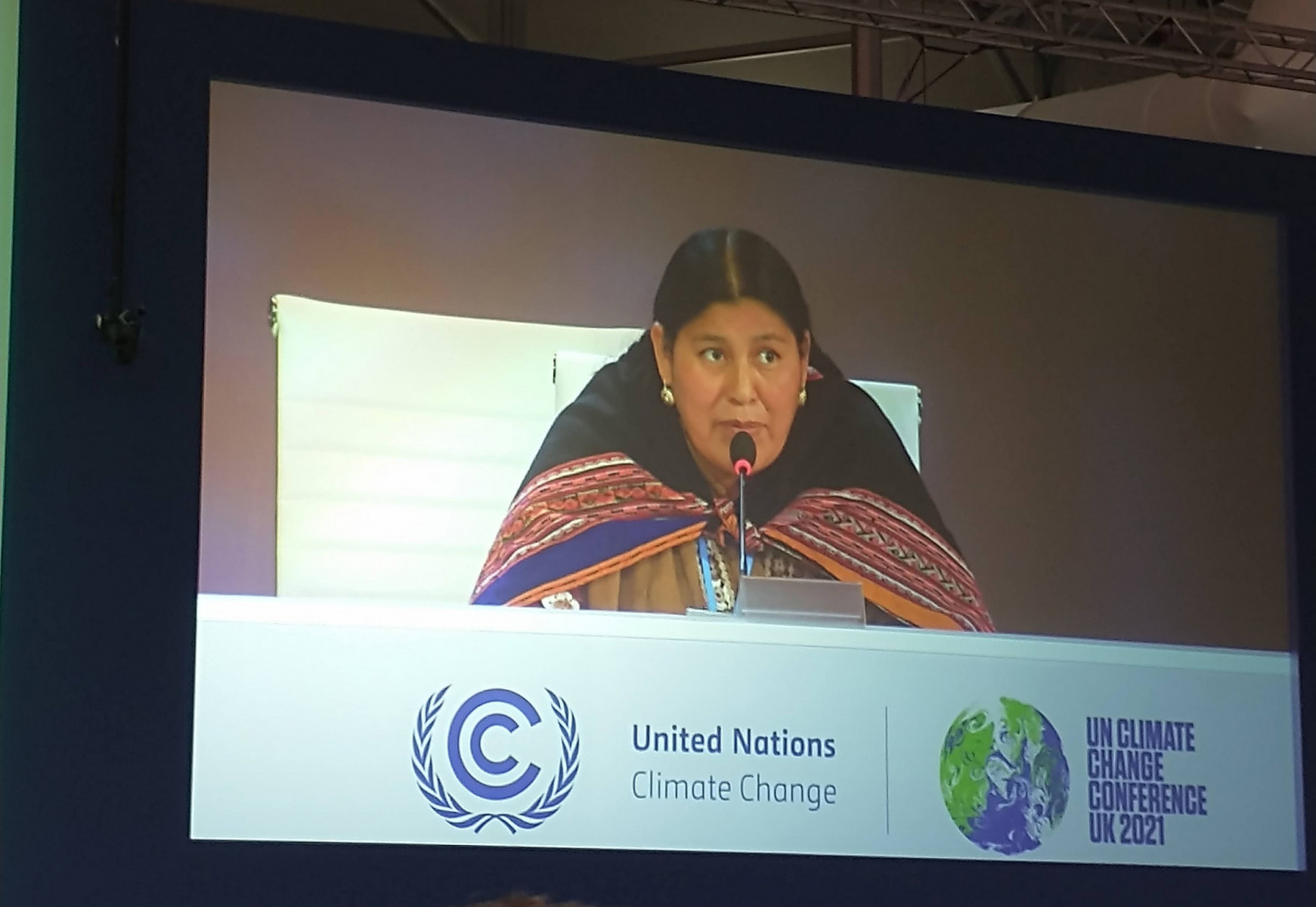
University of Connecticut COP26 delegates stand with Sudanese-American poet and activist, Emtithal "Emi" Mahmoud, center. (University of Connecticut)

University of Connecticut COP26 delegates stand with Sudanese-American poet and activist, Emtithal "Emi" Mahmoud, center. (University of Connecticut)
Sometimes I wonder what would happen if the world put aside politics for a moment and we listened to each other as people: each one of us with different stories, identities, and perspectives, but also things in common. If we listened like that, would the climate crisis be as bad as it is today? Would the U.N. conferences on climate change, where the world comes together to negotiate climate action, be as inequitable as they currently are? Would there be as little action coming out of them? Judging from my experience at COP26, I think listening like this would make a big difference.
I was lucky enough to have the privilege of attending COP26 as a delegate from the University of Connecticut, where I am currently a senior environmental studies student. On my second day at the conference, I heard an Indigenous Bolivian woman—Angélica Ponce Chambi—speak about gender equality and climate change, the role that Indigenous women have in protecting the environment, and the need for immediate global action for environmental protection. It was beautiful and it was moving. It’s one of the relatively few events at COP that gave me genuine hope. Another such moment came in hearing from Emtithal “Emi” Mahmoud, a Sudanese-American poet and advocate for refugees. What the two speakers have in common is personal experience. They didn’t get a comfortable delegate job through family connections, because they’re wealthy, or any other reason based on luck and privilege.

Rather, both are from a community already feeling the impacts of climate disasters, communities doing the real work to recover. They have been impacted, and they are fighting every day for real action. They are on the frontlines.
These are the people we need to hear from. Communities have solutions—ones that are often more effective because they are created by the people who are affected by the problem and will be affected by the solution.
I know that COP is about politics; I know that countries, people, organizations, and corporations are there to make a statement and negotiate deals. But what if, for just a moment, we paused and listened? Truly listened, with empathy and caring, to those being most impacted, to the community organizers, to those who are not usually heard. I’m not naive. I know that listening won’t suddenly make all of our differences disappear, that the negotiations won’t suddenly become easy, but I do believe it would help.
The problem is different when we’re able to see it through a human and community lens. It’s harder to think of it as just a policy issue, and not a people issue. When you think of something as a people issue, what choice is there but to act? When there’s a face and a story, and when we listen with empathy, we can see ourselves, and our loved ones in that story.
When I heard Mahmoud speak, I heard someone with a different past, and different identities from me—but also someone who shares an identity as an activist, and a frustration with COP for ignoring the voices of those being affected. When I heard Chambi speak, I again heard someone with different identities and backgrounds, but also someone who shares an identity as a woman who is proud to be in the climate movement and bring her specific perspective as a woman to the table. Their voices and stories resonated with me, while allowing a glimpse into someone else’s lived experiences.
I believe that stories based on lived experiences matter. They have an enormous impact. The presence of these stories and the people who carry them might not “fix” COP because of how unjust it has been—from the lack of women at COP in positions of power to inequities in who was able to access the COVID-19 vaccine and travel to the conference. Yet, I believe that it would go a long way in remedying some of the harms that have been done by creating space for those who need to be heard most, and result in action that is more on par with the needs of the moment.
COP27 will happen one year from now in Egypt. The world is watching. We are ready for a COP that is just and equitable, that centers on those most impacted, and acts on climate change at the scale of the crisis we are facing. We are watching—and we expect better.